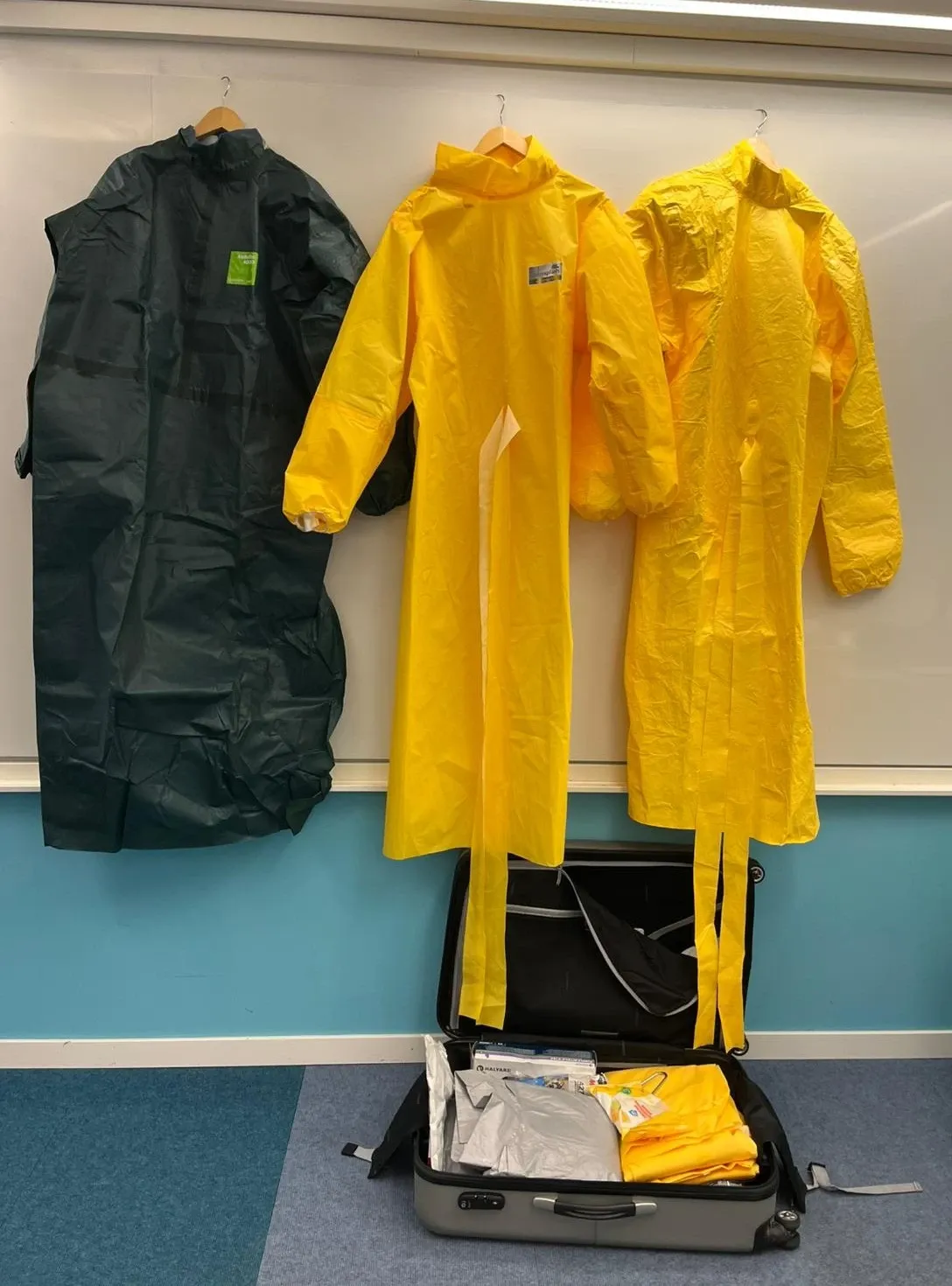Advanced Hazmat Life Support (AHLS) is a brand-new course in Sweden, that is being taught for the first time at Karolinska Institutet. During two intense days in February, medical doctors, nurses, paramedics and people with special responsibilities in the field of CBRN (chemical, biological, radiological and nuclear materials) are trained in medical care in the event of exposure to hazardous chemicals.

Exposure to hazardous chemicals can range from serious workplace accidents to terrorist attacks involving toxic nerve agents.
- 'Major chemical incidents are fortunately rare, but very serious when they do occur, which means that thorough training and education are a fundamental part of our preparedness,' says Mattias Öberg , toxicologist at the Institute of Environmental Medicine and expert coordinator in chemical and toxicological events at the Centre for Health Crises , both at Karolinska Institutet.
Together with colleagues from t he Centre for Teaching & Research in Disaster Medicine and Traumatology at Linköping University , and for the National Board of Health and Welfare , he has adapted the concept course AHLS - Advanced Hazmat Life Support - to Swedish conditions. It is a course that was originally developed by the American Academy of Clinical Toxicology (AACT) and the University of Arizona.
- Previously, Swedes had to do the course abroad. I myself have done the course that way, but it is not optimal. Swedish healthcare staff need to learn how to handle hazardous material and provide care under Swedish conditions. With an increasing threat level and new challenges in the field of CBRN, it is even more important to have an internationally coordinated approach and the new AHLS training fits perfectly to that, Mattias continues.
Lisa Stokseth from Region Blekinge agrees. She is a senior consultant emergency physician and medical director at the emergency clinic.
- 'I think it's a very rewarding course that is relevant to our work, not least in increasing the general preparedness of the healthcare system and meeting NATO's host nation requirements.
The course is made up of lectures, scenario-based exercises and group exercise. There is a lot to cover in two days. The course finishes with a test, and participants who pass the test receive an international AHLS certificate. Since this is the first time the course is taught in Sweden, it will be thoroughly evaluated and any adjustments needed future courses reviewed.






